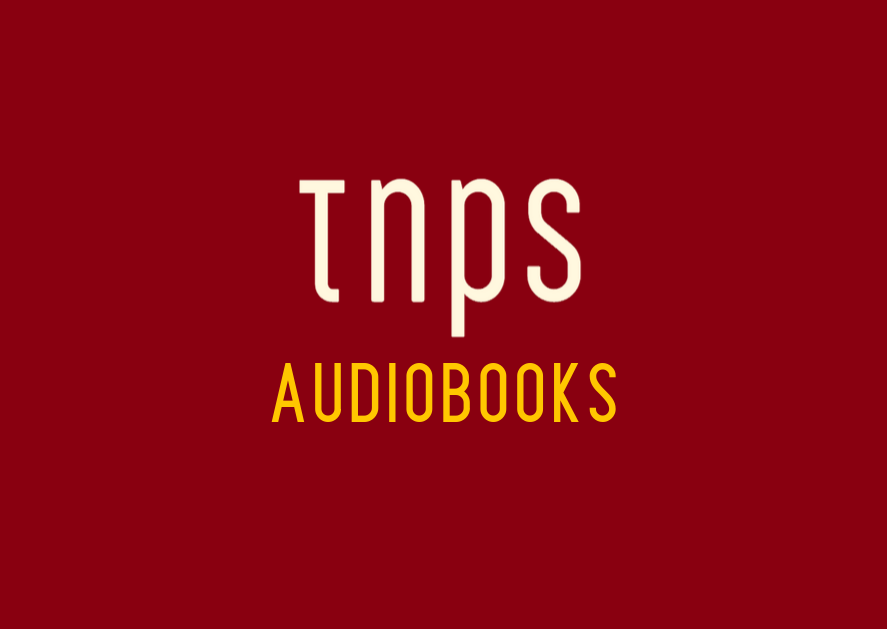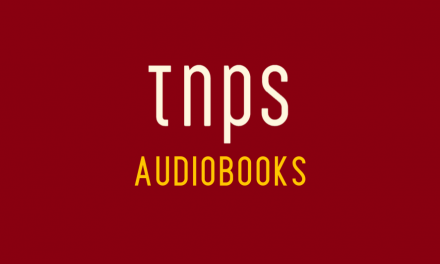By recognising and embracing the full potential of AI across the industry, publishers, authors and narrators alike can surf this new wave of possibilities, instead of being left behind.
Back in October, the UK trade journal The Bookseller carried an article by Kelli Fairbrother arguing that the UK audiobook market, routinely valued at just over £2 m ($2.5 m), should more realistically be valued at £1 bn ($1.275 bn) if we get our heads out of the industry sand and look at the bigger picture, with lessons for other markets, bigger and smaller.
The report seems to have been largely overlooked, but the underlying message – that the real audiobook market is worth five times the “official” industry figure, is too important to let fade away.
Some Familiar Ground for TNPS Readers
Kelli Fairbrother, CEO of the audiobook platform xigxag, covers some ground TNPS readers will be familiar with – that the “official” industry stats measure only a part of the market, a theme regularly visited by TNPS with regard to ebooks.
But Fairbrother also takes on board another metric: actual spending on audiobooks rather than just invoiced receipts from publishers (far from all) that report to the trade bodies. Again this would apply equally to ebooks, but as audiobooks are routinely more expensive than ebooks, the final figures are that much larger, with implications for the overall economy, not just the industry.
Re-evaluating the UK Audiobook Market: A Call for Innovation and Investment
Available statistics vastly underplay the size of the UK talking books market, argues Kelli Fairbrother, advocating for increased investment and innovation in the sector. By Fairbrother’s estimate, the UK audiobook market surpassed £1bn in 2023, revealing a significant gap between perceived and actual market value.
The True Size of the UK Audiobook Market
Reported invoiced (not retail) audiobook sales, per the UK’s Publishers Association, ran to £206 m in 2023. But consider: Audible UK in 2023 reported revenue (a rare instance of an Amazon company having lay out its earnings) of £242 m ($308 m), posting an after-tax profit of £24.4 m ($31 m).
In other words, Audible UK’s revenue alone was larger than the reported value to the industry as cited by the Publishers Association.
Discrepancies in Market Valuation
No question, then, that the official figure of £206 m in audiobook sales reported by UK publishers in 2023 grossly underestimates the actual market size. But, argues Fairbrother, when factoring in retailer revenue, unreported sales from major publishers like Audible, and US-originated content, the market size exceeds £1.1bn.
Invisible Sales and Revenues
Unreported sales? Here there are clear parallels with the .ebook revenue debate. Audible, for example, does not report to the Publishers Association, so Audible’s Amazon-owned content, along with everything self-published by authors through its ACX arm (many exclusive to ACX to get the higher royalty) go uncounted.
Per Fairbrother in The Bookseller, “Estimating market share is tricky, but a rather excellent Bookstat analysis from The Bookseller’s FutureBook 2019 conference suggests that the £400m figure comprises less than half of total audiobook sales. Incorporating total consumer spend for the missing publishers more than doubles the market size—to over £800m (actually, closer to £900m). “
Invisible US Sales in UK
But thanks to being CEO of xigxag (yes, it’s all lower-case), Fairbrother is able to put a figure on audiobook sales originating outside the UK (mostly from the USA). “From our own experience, we estimate this to be approximately 20% of the total market.“
Implications for Investment and Innovation
The true market size is crucial, Fairbrother says, as it influences the level of investment in the sector. Despite audiobooks being the fastest-growing segment in the UK book market, they are often perceived as niche, leading to underfunding. To which I’d add, the sheer cost of producing audiobooks is a huge deterrent for publishers of all sizes.
All of which amounts to myriad missed opportunities for publishers, authors and narrators.
Examples of Overlooked Opportunities
- Delayed Audiobook Releases: Recent prize-winning books often see audio versions released long after the print and e-book formats.
- Limited Availability: “Beautiful books” with extensive illustrations rarely make it into audio.
- Underfunded Marketing: Audio teams often lack sufficient marketing support.
Growth Prospects and Market Potential
At a 30% annual growth rate, UK consumers are likely to spend £1.5bn on audiobooks this year, approaching the total estimated spend for print books in 2023.
And this of course is based on historic market trends, and does not factor in Spotify, which launched its at the time hugely controversial Premium catalogue in the UK in October 2023.
A year on, and we’re still eagerly awaiting the numbers that will show the true impact of Spotify in expanding the market, but no-one could doubt the market has swollen, as testified by the rush of publishers to clamber on board (most recently Bloomsbury) and Amazon throwing audiobooks into its music subscription arm.

And then of course there is the deathly silence from the Society of Authors, which at the time roundly condemned Spotify’s entry in the audiobook market as bad for authors, shamefully and falsely asserting Spotify was giving away audiobooks for free.

Lessons for the US Audiobook Market
The same principles of unreported revenue and sales apply to the US market. Understanding the full market size is crucial for directing appropriate investment and innovation.
And, too, the same applies as regards Spotify’s impact on the American audiobook market. We’ll get some idea of the scale of Spotify’s impact next year, as the 2024 figures are revealed, but early signs are positive.
Peter Messner, CFO of Storytel, parent company of Audiobooks.com, reported Storytel is seeing “a lot of tailwinds because of Spotify’s entry. They have essentially made the cake much bigger by converting their own music listeners to also listening to audiobooks. And that is a very positive impact on that entire industry”.

Raising the Possibilities Bar, Scratching the Surface of Potential
All of which means the UK and US (and other) audiobook markets are undervalued by the industry, and the 2024 figures with the Spotify effect taken into account will raise the possibilities bar still higher.
But right now we are just scratching the surface of the potential the audiobook market has.
Kelli Fairbrother steered clear of the contentious AI debate, to keep the focus on her point about the current size of the audiobook market. But we need to factor in AI’s potential to really understand the opportunity unfolding for the industry.
- London Book Fair 2024: LBF hosted a panel discussion on “The Future of Audio in Publishing: Global Trends and the Impact of AI”. Industry experts discussed the current state and future prospects of the audiobook market, including the potential for high-quality productions and expanding into non-English languages.
- FutureBook 2024 Conference: At the FutureBook conference in the UK, Amanda D’Acierno, president of Penguin Random House Audio, highlighted the robust growth in the audiobook sector and the increased hiring in audio-related roles. And in a subtle rebuke to the Luddite fringe that claims AI is eliminating jobs, D’Acierno emphasised the importance of upskilling in this area.
Do You Want It Out There, Or Not?
The potential for expansion into English-language markets overseas that produce localised content in English – India, Malaysia and too many others to mention – is immeasurable, and as AI-assisted translation and narration into other languages continues to improve, so the scale of audio potential goes off the chart.
Simon & Schuster is in the firing line for some of its subsidiaries embracing AI narration, as reported from Frankfurt by Edward Nawotka at Publishers Weekly, but this quote from Richard Sarnoff—chairman of media, entertainment, and education for KKR, which owns Simon & Schuster—sums up the future: “When it comes to AI voice, if the only economic way to publish an audiobook in twelve different Indian dialects would be through AI, it becomes a question of ‘do you want it out there, or not?’“
Surfing This New Wave of Possibilities
Going full circle, then, it’s clear the UK audiobook market’s true size, even if Kelli Fairbrother’s estimates are overly-ambitious, is way bigger than the industry takes credit for, and this underscores the need for reevaluation and increased investment.
Nathan Hull, writing in All About Digital Publishing, had this to say: “While the mature audio markets of Europe and the US focus on their own opportunities and challenges, expect over-accelerated audio booms in some unexpected markets. Again, capitalising on the cost-effectiveness and speed of AI audio tools, not all listeners around the world will have the same expectation levels of quality in their audiobooks. Nascent AI recordings can sit alongside traditional human narrations to create booms in MENA, East Africa and central Asia.”
By recognising the full potential of audiobooks, publishers and authors can better allocate resources and innovate to meet growing consumer demand, both in the UK and internationally.
And by recognising and embracing the full potential of AI across the industry and globally, publishers, authors and narrators alike can surf this new wave of possibilities, instead of being left behind.
This post first appeared in the TNPS LinkedIn newsletter.





